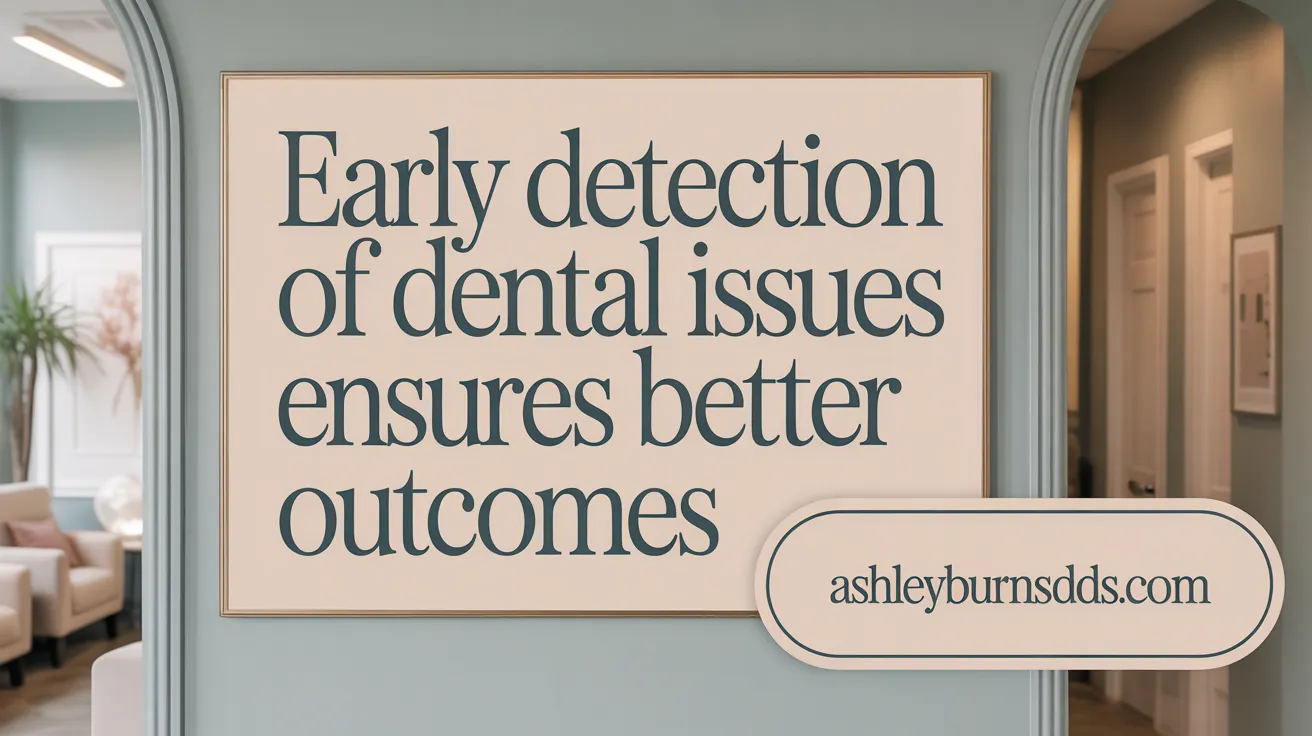Understanding the Limits of Regular Dental Cleanings
While regular dental cleanings are a cornerstone of oral health maintenance, certain signs and symptoms indicate that more intensive dental care might be necessary. Recognizing these indicators can ensure timely treatment, prevent progression of dental diseases, and maintain both oral and overall health. This article explores the key warning signs, describes when advanced cleanings like deep cleaning are needed, and explains why adhering to recommended dental visits is crucial for long-term well-being.
Key Signs That You Need More Than Just a Routine Cleaning

What are the signs that indicate I might need a dental cleaning beyond a regular routine cleaning?
There are several indicators that your oral health may require more than a standard cleaning every six months. Persistent bleeding or swelling of the gums during brushing or flossing often points to gum inflammation or early gum disease, which might necessitate a deeper cleaning like scaling and root planing.
Visible plaque and tartar buildup are common signs that home brushing isn’t enough. Tartar, which is hardened plaque, can only be professionally removed and tends to accumulate along the gum line and between teeth (consequences of plaque buildup).
Bad breath that doesn’t go away after routine brushing and flossing, also known as halitosis, can be a sign of bacterial buildup below the gumline. If bad breath persists despite good oral hygiene, a professional cleaning might be needed to eliminate hidden bacteria (persistent bad breath and dental cleanings).
Gum recession and loose or shifting teeth are serious signs of advanced gum disease. Receding gums expose tooth roots, increasing decay risk and causing sensitivity. Loose teeth indicate that the support structures are compromised (signs you need a deep cleaning).
Discoloration or staining on teeth that doesn’t improve with brushing or whitening toothpaste may also mean a deeper cleaning is necessary to remove surface stains and plaque residues (professional teeth stain removal.
Timing is essential—if more than six months have passed since your last dental visit, or if you notice any of these symptoms, scheduling a dental appointment for a professional dental cleaning can prevent more severe issues. Regular checkups help detect and address problems early, saving you discomfort and costly treatments later.
Why Timely Dental Care and Professional Evaluation Matter

Why is timely dental care important and what are the signs that oral health issues need intervention?
Timely dental care plays a vital role in maintaining overall oral health by catching problems early before they become severe. Regular visits enable dentists to identify initial signs of issues such as cavities, gum inflammation, or infection. Recognizing symptoms early allows for simple and less invasive treatments, preserving the health of teeth and gums. Common signs that urgent intervention is needed include persistent bleeding gums, swelling, severe tooth pain, loose or shifting teeth, or visible damage like chipped or knocked-out teeth. Delaying care can lead to advanced problems like bone loss, systemic infections, or the need for costly procedures, emphasizing the importance of routine checkups and good oral hygiene.
When should I seek professional dental evaluation due to oral health symptoms or problems?
You should consult a dentist promptly if you experience symptoms like ongoing pain, bleeding, swelling, or bad breath that persists despite good oral hygiene. Visible issues such as sores, lesions, or abnormal growths in the mouth also require immediate evaluation to exclude serious conditions, including oral cancer. Routine checkups are recommended every six months, but higher-risk individuals, including those with gum disease, diabetes, or smokers, may need more frequent visits. Additionally, symptoms such as increased tooth sensitivity, discoloration, or loose teeth should not be ignored, as early detection can prevent progression of diseases and improve outcomes.
Understanding Deep Cleaning: When and Why It’s Needed
 Deep cleaning, also known as scaling and root planing, is a specialized dental procedure aimed at treating gum disease by thoroughly removing plaque and tartar from below the gumline. Unlike regular cleanings that target visible plaque on the surfaces of teeth, deep cleaning reaches the areas hidden beneath the gums where bacteria often thrive.
Deep cleaning, also known as scaling and root planing, is a specialized dental procedure aimed at treating gum disease by thoroughly removing plaque and tartar from below the gumline. Unlike regular cleanings that target visible plaque on the surfaces of teeth, deep cleaning reaches the areas hidden beneath the gums where bacteria often thrive.
Symptoms that indicate a need for this invasive procedure include swollen, bleeding, or tender gums; receding gums which expose the roots and make teeth more sensitive; and the presence of deep pockets exceeding 5 millimeters between the teeth and gums. Patients may also notice persistent bad breath, loose teeth, or brittle teeth that seem to shift over time. For more on signs you need deep dental cleaning, see this resource.
The process involves numbing the gums with local anesthesia to ensure comfort. Dentists use special tools, such as ultrasonic scalers and hand instruments, to carefully remove plaque and tartar deposits below the gumline. Following cleaning, the roots of the teeth are smoothed in a process called root planing, which helps the gums reattach securely and prevents bacteria from accumulating. Detailed explanation about scaling and root planing procedure can be found here.
Benefits of deep cleaning include halting the progression of gum disease, reducing inflammation and bleeding, eliminating persistent bad breath, and preventing potential tooth loss. However, it carries some risks, such as gum recession, increased tooth sensitivity, or temporary discomfort during recovery. Comprehensive overview of benefits and risks of deep cleaning is available.
Most patients require this procedure once every 6 to 12 months, depending on the severity of their condition. Post-procedure, dentists recommend maintaining excellent oral hygiene, including regular brushing, flossing, and routine dental visits. Temporary side effects like sensitivity and minor soreness are common but usually subside within a week. Proper aftercare and follow-up are essential to ensure successful healing and long-term oral health.
Dental Problems That Require More Than Routine Cleaning
What dental health problems require treatment beyond regular cleaning, such as cavities or gum disease?
Some dental issues go beyond what a routine cleaning can manage, demanding more comprehensive treatments. Cavities and tooth decay, for instance, need fillings or other restorations to repair damaged teeth. When plaque and tartar accumulate excessively, especially under the gums, they cause inflammation and lead to gum diseases like gingivitis and periodontitis.
Gum recession and loose teeth are signs that gum disease has advanced significantly, often requiring deep cleaning procedures such as scaling and root planing. In severe cases, when plaque and tartar buildup are heavy, a procedure called gross debridement might be necessary to clear the mouth thoroughly before any further treatment.
Untreated oral infections and persistent gum inflammation can have broader health effects, impacting systems like the heart or increasing the risk of diabetes complications. Recognizing symptoms such as bleeding gums, persistent bad breath, tooth sensitivity, or pain can help determine when more than just routine cleaning is needed.
In summary, dental problems like cavities, advanced gum disease, and heavy tartar buildup require treatments beyond regular prophylaxis cleanings. These interventions aim to halt disease progression, restore oral health, and prevent further complications.
Risk Factors and Personalized Dental Care Frequency
Certain factors increase the need for more frequent dental visits and specialized cleanings. Individuals who smoke, have diabetes, or are pregnant often face higher risks of gum disease and other oral health problems, necessitating closer monitoring by their dentist, as detailed in Dental visits for high-risk patients and Signs you may need more frequent dental cleanings.
Systemic conditions like heart disease, respiratory issues, and compromised immune systems can also influence oral health, making regular assessments crucial for early detection and management, explained in Dental cleaning and systemic health and Systemic health risks of poor oral hygiene.
Smoking and dry mouth are particularly problematic, as they contribute to bacterial growth and reduce saliva production, which normally helps protect teeth and gums. These factors can accelerate plaque buildup and increase the risk of cavities and gum disease, according to Risks of skipping dental cleanings and Impact of smoking on dental health.
Based on oral health status, dentists recommend personalized cleaning types. For example, patients with healthy gums typically undergo routine prophylaxis cleanings every six months as outlined in routine dental cleanings every six months and Prophylaxis dental cleaning. In contrast, those with gum disease or periodontal issues may require deep cleanings, such as scaling and root planing, every 3-4 months to control disease progression, explained in Scaling and root planing and Deep cleaning for gum disease.
Knowing if you need more frequent visits involves paying attention to symptoms like persistent gum bleeding, swelling, recurring cavities, or bad breath. If these issues are ongoing despite good home care, it’s a sign to consult your dentist for a tailored schedule, as detailed in Signs you need more frequent dental cleanings and Persistent bad breath and dental cleanings.
Adults with higher risks should regularly discuss their health and symptoms with their dental professional. Regular monitoring helps prevent systemic health complications, reduce the need for extensive treatments, and support overall well-being, highlighted in Role of dentists in preventive care and Importance of preventive dental care.
Taking Action: Securing Your Oral Health Beyond Routine Care
Recognizing when you need more than a regular dental cleaning is vital for preventing advanced dental problems and costly treatments. Persistent signs such as bleeding gums, bad breath, gum recession, and tooth sensitivity should prompt timely professional evaluation. Understanding the differences between routine and deep cleanings helps you appreciate why certain symptoms necessitate deeper intervention like scaling and root planing. Moreover, being aware of your personal risk factors—such as systemic health conditions or lifestyle habits—can guide you and your dentist in setting an appropriate schedule tailored to your oral health needs. Maintaining regular dental visits, coupled with good daily hygiene and awareness of warning signs, ensures not only a healthy smile but also contributes to your overall wellbeing.
